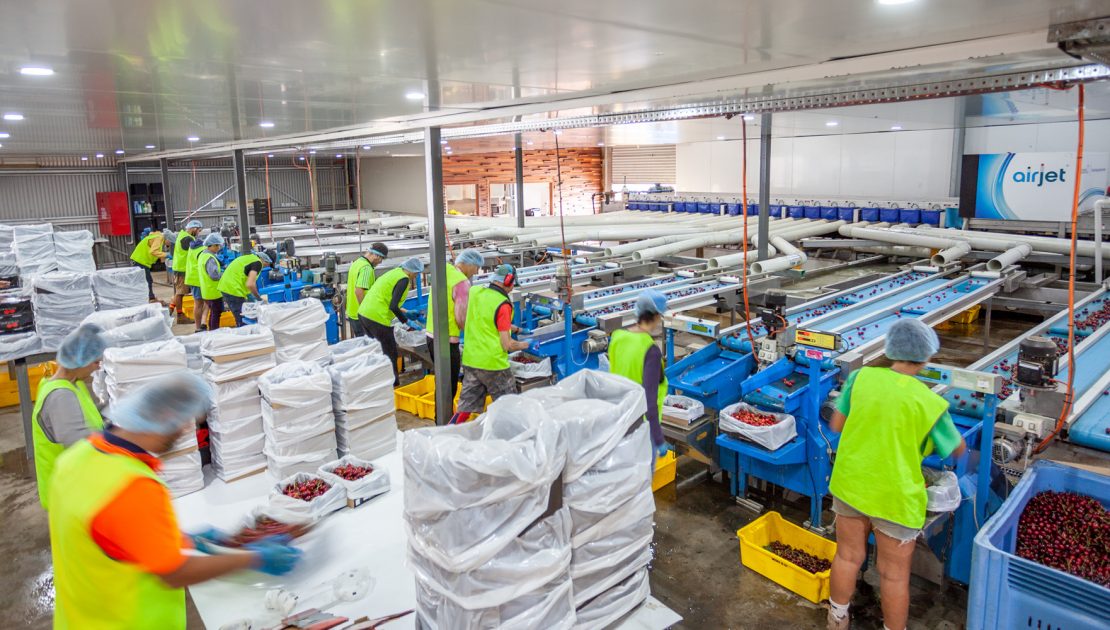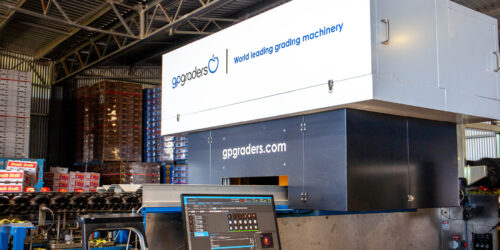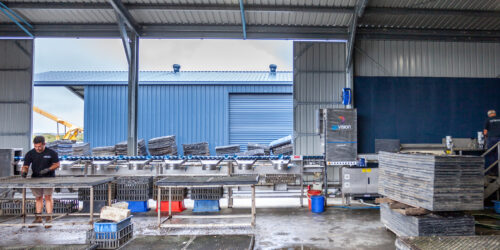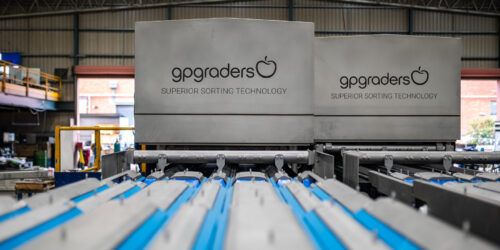We’re proud to partner with so many exceptional agricultural businesses, enhancing the overall productivity and excellence of the fresh produce industry globally.
- 17 September 2021
- gpgraders
- No Comments

A compelling case for Electronic Vision Grading Systems
In a time when labour is not only expensive but also in short supply, a business plan or strategy that’s weighted towards staff reduction is more important than ever before. If the yields that your business is producing exceed 100 tonnes, and you’re still using manual methods to grade your fruit, it’s high time you explored how implementing electronic vision grading systems will save you money.
We’ve recently been chatting with our customers about how their grading machinery has positively impacted the business and found there’s a definite theme. Above all of the benefits of using electronic vision grading systems, the labour savings stand out as the most significant, not just for profitability but also for overall pack-house operations improvement.
Last season, in Australia, not only was the labour difficult to attract out to the rural areas that fruit is grown in but also, reliability became a recurring problem. Some days growers might have enough people and the next day, employed staff just didn’t show up, never to be seen again. This inconsistency causes uncertainty for operations managers, depletes staff morale for the people that are present and adds substantial stress to the incredibly important harvest time.
With the likelihood of continued disruption from the Covid-19 pandemic inevitable, a case can certainly be made for taking the leap and investing in the future of your business with workflow development and automation.
Fewer people for less time
Consider this… a cherry pack-house running 10 tonnes per day over mechanical graders would need approximately 10 people focused solely on removing defective fruit from the sorting tables for over 12 hours. Using a nominal value of $32 per hour (with on costs), this equates to roughly $4000 cost per day for defect sorting alone. Compare this then, to running 10 tonnes of cherries over our AirJet® grader with gpVision™. A 2 lane machine will process approximately 1600 kilos per hour. As such, to do the same tonnage, it would be graded in half the time with only 4 people doing final sorting checks on the fruit. This represents a saving of over $230 per tonne.
And the savings only grow as the production volume increases. One of our customers’ farms is processing over 600 tonnes of beautiful cherries every season. Our labour calculator estimates a saving of over $125,000 per year using our gpVision™ technology compared to manual defect sorting.
One of our four-lane AirJet® snack tomato graders, processing over 200,000 cherry tomatoes per hour is estimated to be saving the business approximately $430,000 per year in sorting staff expense.
These kinds of annual savings make for a compelling case for implementing electronic vision grading systems into your pack-house.
A higher quality product in the box means a higher price
Higher quality = higher price. It’s a simple but powerful concept. And the truth is, that bad fruit ending up in your first-grade boxes and punnets hurts prices in the short term and reputations in the long run. In fact, it’s bad for the entire industry. The president of the Australian Blueberry Growers’ Association, Johnathan Shaw, put it very aptly: “…remember that a buyer who has a bad experience will not purchase again for at least six weeks. – so anyone who is making money from poor fruit now is taking money out of their own pocket as well as the rest of the industry down the track”.
If the opportunity to take some of the variables that come from human sorting out of the equation presents, it can do only good things for your business. Human’s make errors, especially as they tire. By utilising electronic vision grading solutions, you not only share the responsibility of removing flawed fruit between man and machine but also improve the likelihood that defected fruit will be removed in the first place, leading to a better quality product in your cartons overall.
Each season presents its own set of unique circumstances, but in a good season, for example, where weather conditions and pest impact has gone in favour of the growers, the need for manual sorters could be almost entirely removed. Spot checks and a packing person on the end of each exit belt might be all that’s required.
Experience matters
You’ve spent years perfecting your farm operations to grow the best possible produce. You’re proud of the important role you play in agriculture and celebrate the quality you stand for. Likewise, GP Graders has over 60 years of fruit grading experience and is proud to partner with an incredible array of impressive businesses that elevate the industry as a whole.
Our experience and customer relationships ensure we can present the most suitable solution for your unique and individual circumstances.
Now is a great time to discuss how we can help transform your pack-house operations. Click here, to start the conversation.



